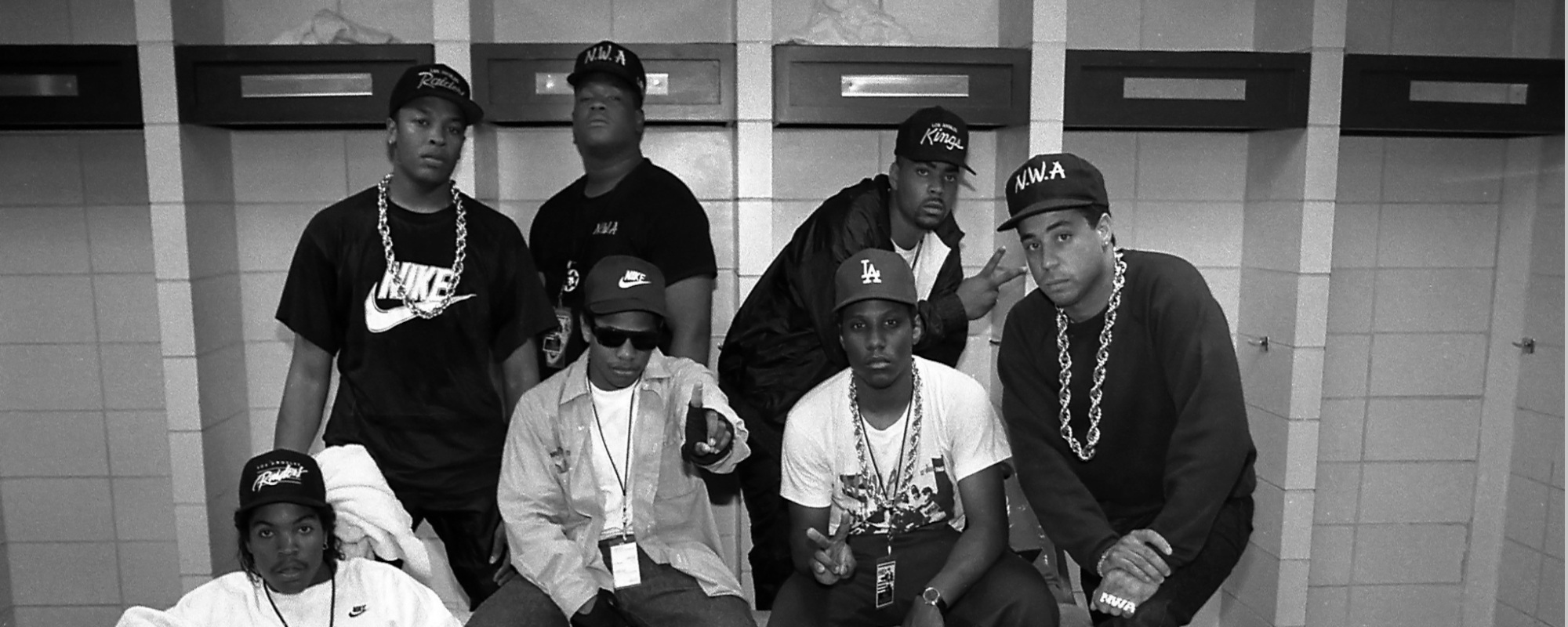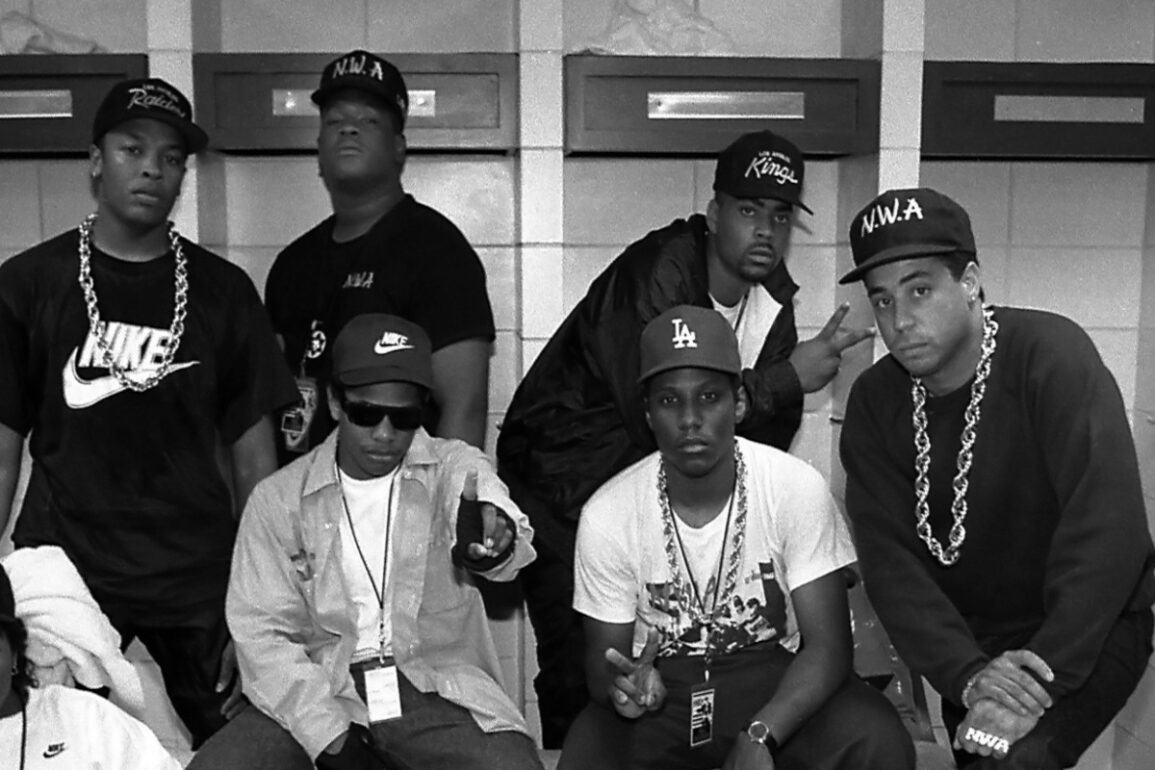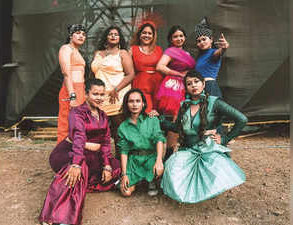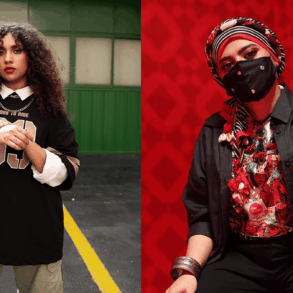
The 1980s was a revolutionary era for hip-hop. As the genre found its footing in the cultural mosaic of the U.S., it quickly transformed from underground urban expression into a global phenomenon. While the origins of hip-hop can be traced back to the late 1970s, it was the ’80s that saw its meteoric rise, driven by catchy hooks, socially conscious lyrics, and innovative production techniques.
Videos by American Songwriter
Artists during this period were not just rappers or producers—they were storytellers, activists, and pioneers. Through their music, they reflected the socio-political landscapes of their communities, giving a voice to the marginalized. The breakthrough of hip-hop into mainstream culture during the ’80s remains one of popular music’s most impactful moments.
The following seven hip-hop tracks not only defined the 1980s, but also paved the way for future generations of artists. Their creators pushed boundaries, experimented with sounds, and spoke truth to power. As we reflect on these classics, it’s evident that their legacy still reverberates, influencing and inspiring new generations of hip-hop artists and enthusiasts.
1. “The Message” by Grandmaster Flash & The Furious Five (1982)
One of the earliest bhip-hop tracks to delve into the socio-economic struggles of urban life, “The Message,” is raw, real, and incredibly poignant. The line Don’t push me, ’cause I’m close to the edge has become iconic. “The Message” was also one of the first hip-hop tracks to be inducted into the Grammy Hall of Fame in 2002.
2. “Fight the Power” by Public Enemy (1989)
Utilized in Spike Lee’s film Do the Right Thing, this track was a call to action against systemic oppression. Public Enemy‘s Chuck D once described it as the group’s “war chant.” Surprisingly, the song never topped charts, but it did become an anthem of resistance, proving that chart numbers aren’t always the sole indicator of a track’s impact.
[RELATED: The Meaning Behind Public Enemy’s Declarative “Don’t Believe the Hype”]
3. “Paid in Full” by Eric B. & Rakim (1987)
Rakim’s intricate lyricism paired with Eric B.’s innovative sampling techniques made “Paid in Full” a groundbreaking track. The song utilized a loop from the song “Don’t Look Any Further” by Dennis Edwards, a sample that would be reused by many more artists in subsequent years. The remix of this track by British dance crew Coldcut, with its Ofra Haza sample, became particularly influential in U.K. club scenes. It was one of the first high-profile remixes to become a hit in its own right.
4. “Push It” by Salt-N-Pepa (1987)
As one of the earliest all-female rap groups, Salt-N-Pepa broke barriers with “Push It.” Not only did the track climb to No. 19 on the Billboard Hot 100, but it also received a Grammy nomination. “Push It” was initially released as a B-side, but its infectious beat and catchy lyrics quickly propelled it into the limelight.
5. “Straight Outta Compton” by N.W.A (1988)
N.W.A’s explosive track not only encapsulated the rage and defiance of a generation, but also ushered in the era of gangsta rap. With no lyrical holds barred, N.W.A gave a raw, unfiltered view of life in inner-city Los Angeles. Despite the track’s controversial nature, it left an indomitable mark on hip-hop, influencing countless artists and highlighting societal issues that are, sadly, still very relevant today.
6. “Walk This Way” by Run-DMC feat. Aerosmith (1986)
In a bold move, Run-DMC remade Aerosmith’s ’70s rock hit, transforming it into a hip-hop classic. They collaborated directly with the Boston band, which would introduce hip-hop to a broader audience (and re-introduce the masses to a flailing-at-the-time Aerosmith). Originally, Run-DMC had no idea who Aerosmith was and intended to sample the beat, but producer Rick Rubin proposed a collaboration between the two groups, leading to a genre-blending hit.
7. “Planet Rock” by Afrika Bambaataa & The Soulsonic Force (1982)
Merging the worlds of hip-hop and electronic music, “Planet Rock” utilized elements from Kraftwerk’s “Trans-Europe Express.” The song’s influence can be felt in both genres, creating a bridge between the urban streets of New York and the electronic sounds of European discos. The track led to numerous lawsuits due to its unlicensed use of samples, highlighting the need for clearer sampling rights in the music industry.
Photo By Raymond Boyd/Michael Ochs Archives/Getty Images
This post was originally published on this site be sure to check out more of their content.







